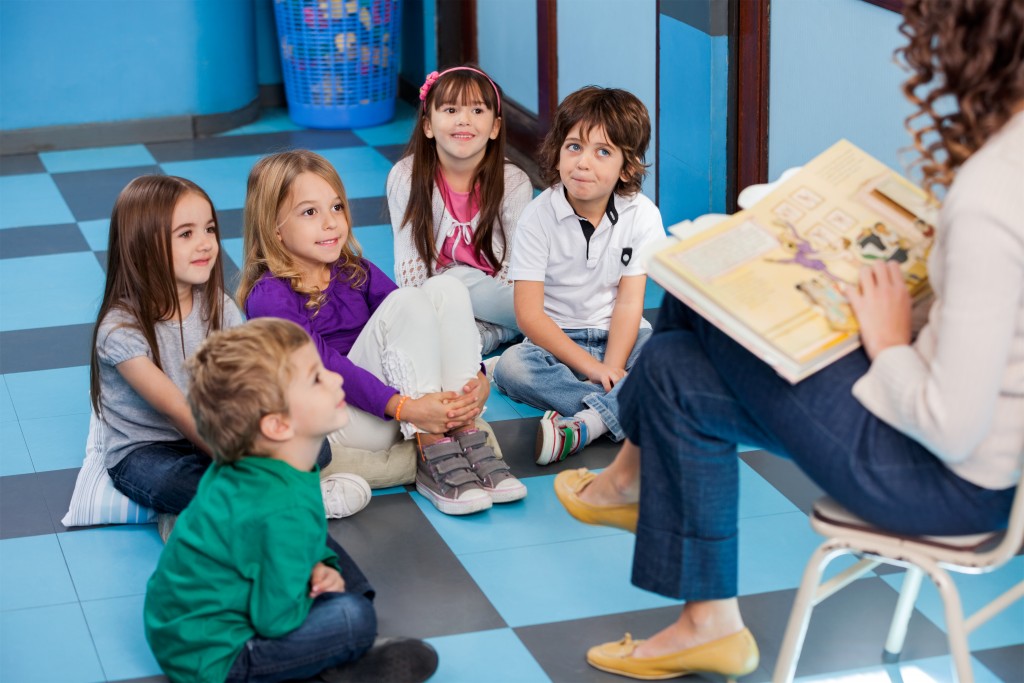Many parents these days have become very particular about their kids’ education. This means that kids are getting more and more opportunities to learn new things at a very young age. This is a good thing, as kids with access to quality education tend to do better in life than those without.
One of the most important aspects of kids’ education is teaching them how to think for themselves. Many kids are used to being spoon-fed information and never really learn how to think for themselves. This can be a problem when they reach adulthood, as they won’t make good decisions independently.
Therefore, parents should invest in quality education for their kids from pre-K until they finish college. This will help kids develop their sense of judgment, and they’ll be able to make the right decisions in life as mature adults.
- What Exactly Is Early Childhood Education?
- What is the purpose of Early Childhood Education?
- Investing In Kids’ Education
- Investing in Quality Education
- Benefits Of Early Childhood Education
- Key Challenges
- Future Scope Of Kid’s Education With Emerging Trends And Technologies
- Frequently Asked Questions About Kid’s Education
What Exactly Is Early Childhood Education?
Early childhood education, also known as preschool or pre-K, is the educational period that occurs before a child enters elementary school and focuses on their overall development, ranging from physical to social and intellectual. Early childhood education is integral in helping children develop the skills they need for future success in school and beyond.
It also refers to how educators and parents work together to provide optimal learning opportunities for children. This includes formal instruction and activities such as outdoor play and creative exploration. As such, this type of education is tailored to meet children’s individual needs and interests.
What is the purpose of Early Childhood Education?
For many children, early childhood education provides the foundation for lifelong learning. It aims to equip children with the skills and knowledge they need to succeed in school and beyond. According to the National Association for the Education of Young Children (NAEYC), early childhood education aims to facilitate physical, cognitive, emotional, and social development. This begins with basic skills such as counting, coloring, and reading.
Many early childhood education programs focus on developing language, literacy, problem-solving skills, and creativity. Educators aim to teach children how to interact positively with others and develop self-help skills. Children learn to understand their emotions and express themselves healthily through learning activities.
Investing In Kids’ Education
One of the best things about kids’ education is that it helps them develop their personalities. Kids who go to school are exposed to kids of different backgrounds and develop their own personalities by interacting with them. This way, kids will learn how to get along with people from all walks of life when they grow up.
Conventional wisdom says that kids should attend school to develop good work ethics, but the truth is that attending school helps kids live normal lives and become better at socializing.
Below are more benefits that come with educating kids:
-
Helping kids become independent
One of the most important things that schools teach kids is independence. Kids need to learn to be independent to care for themselves and their basic needs. By being independent, kids will accomplish more things on their own every day. As a result, they will feel more accomplished and proud of themselves.
-
Teaching kids about teamwork
To be productive members of society, kids must learn how to work as a team. Schools teach kids the importance of teamwork by participating in group activities and projects. When kids work together, they can achieve things they never could alone. Therefore, kids will be more likely to succeed as adults if they learn about the importance of teamwork in school.
-
Learning about one’s culture and respecting different customs
In this day and age, kids are exposed to various cultures from around the world. Kids need to learn how people live in other parts of the world so that they can appreciate them for who they are. They also need to respect these differences, even if they don’t agree with them. This is something that kids can learn in school by studying different cultures and participating in cross-cultural activities.
-
Helping kids build valuable social skills

Schools provide kids with a chance to learn how to interact with others, which is not something they will be able to do much at home. Kids may have trouble getting along with other people without opportunities to practice communicating in school.
This is why kids need to attend school. They can learn about different cultures and how to get along with others. These skills will help them in their personal lives and their future careers.
-
Helping kids expand their knowledge
Schools also help kids expand their knowledge. They can learn about different subjects in school and more about their world. This is important because kids need to be knowledgeable about current events and other things happening in the world.
-
Helping kids become valuable members of the community
When kids are educated properly, they become valuable members of the community. Schools help kids become more culturally aware and well-rounded individuals who can make a difference in their communities and beyond. Therefore, kids need to be educated to help them become good citizens and contribute to society positively.
-
Helping kids achieve their dreams
Lastly, schools play an important role in helping kids achieve their dreams. This is because schools allow kids to learn about different careers and what it takes to succeed in those careers. Schools also allow kids to develop skills and experiences they can use in the real world.
Investing in Quality Education
Good education is important for kids because it gives them the skills they need to succeed. A good education teaches kids to think critically, communicate well, solve problems, and work in a team. It also prepares kids to contribute positively to society as adults by teaching them how important it is to be ethical citizens who care about their communities.
Benefits Of Early Childhood Education
Resilience
Early childhood education promotes resilience and helps children develop the skills to cope with challenging experiences. Some strategies that help foster resilience include positive reinforcement, problem-solving activities, and building relationships with adults. They also develop the capacity to deal with stress, manage difficult emotions, and handle conflicts.
Concentration
Early childhood education also improves concentration. Children are taught to focus on their current tasks, attend to new information, and develop their attention span. This skill is critical for school success as it helps children pay attention in class and complete assignments. As such, children are more likely to excel academically and develop better study habits.
Patience
Educators strive to create an atmosphere where children learn to wait for their turn and share. This helps develop patience, essential for navigating social situations with peers, family members, and adults. Early childhood education teaches children to delay gratification and wait for the best outcome.
Develop Cognitive Skills
It also lays the foundation for cognitive skills such as memorization, problem-solving, and critical thinking. Children learn to think abstractly and solve real-world problems through practice and repetition. This helps improve their academic performance, school engagement, and ability to make sound decisions.
Build Emotional Intelligence
Even more importantly, early childhood education helps children understand and express their own emotions as well as recognize the feelings of others. They learn how to communicate effectively and how resolve conflicts respectfully and peacefully. This is essential for success in school, work, and relationships.
Flexible To Learn New Things
Learners in early childhood education become more flexible in their thinking, meaning they can adapt to different environments and learn new things. They learn to think critically, ask questions, and consider different perspectives. Many early childhood education programs also integrate technology, which helps children become competent and prepared for the future.
Key Challenges
Despite the many benefits of early childhood education, some challenges still need to be addressed. For one, the pandemic made it difficult for many families to access quality early childhood education programs. Knowing about education after the pandemic can be helpful, but investing in strong early childhood education programs is the best way to ensure a bright future for young children.
Moreover, online learning has made the transition to remote education easier but can be difficult for younger children. Although there are many amazing benefits of online education for young learners, it can also create complex challenges, such as a lack of physical movement and difficulty staying focused. Many educators are working hard to ensure children’s needs and social-emotional development remain a priority, even in virtual classrooms.
In addition, early childhood education programs often lack funding and resources, making it more difficult for educators to provide the best experiences for children. These issues must be addressed to ensure all children have access to high-quality learning and get the best start.
Future Scope Of Kid’s Education With Emerging Trends And Technologies
With the help of emerging trends and technologies, early childhood education is becoming more accessible and personalized. Smart technology, such as interactive whiteboards and virtual reality, provides children with engaging learning experiences. Moreover, online learning platforms enable parents to monitor their children’s progress and tailor learning experiences to suit their needs.
Furthermore, more early childhood education programs use data-driven strategies to ensure all children have access to quality education. These efforts enable educators and administrators to track student performance, identify learning gaps, and target interventions to improve outcomes.
Bottom Line
In conclusion, early childhood education is essential for children’s success in life. It helps them develop cognitive, physical, social, and emotional skills and lays the foundation for lifelong learning. By investing in quality early childhood education programs and leveraging emerging technologies, parents can ensure that their children have the opportunity to reach their full potential.
Frequently Asked Questions About Kid’s Education
1) What is STEM education for kids?
STEM (Science, Technology, Engineering, and Mathematics) education focuses on developing problem-solving skills and creative thinking. It aims to prepare children for the 21st century by teaching them the skills to succeed in a global economy.
2) Why is education important for kids?
Education is essential for kids because it provides the foundation for lifelong learning. Children learn the skills and knowledge they need to succeed in school, life, and work. It also helps them build strong relationships with peers and adults.
3) How to save money for kids’ education?
One way to save money for kids’ education is to start early. Set aside a percentage of your monthly income and deposit it into a separate account that you can use for your child’s future educational needs.
4) What are the options to invest in kids’ education?
Several investment options include 529 plans, custodial accounts, trust funds, Coverdell Education Savings Accounts (ESAs), and other investment vehicles. Talk to a financial advisor to find the best option to meet your goals.


